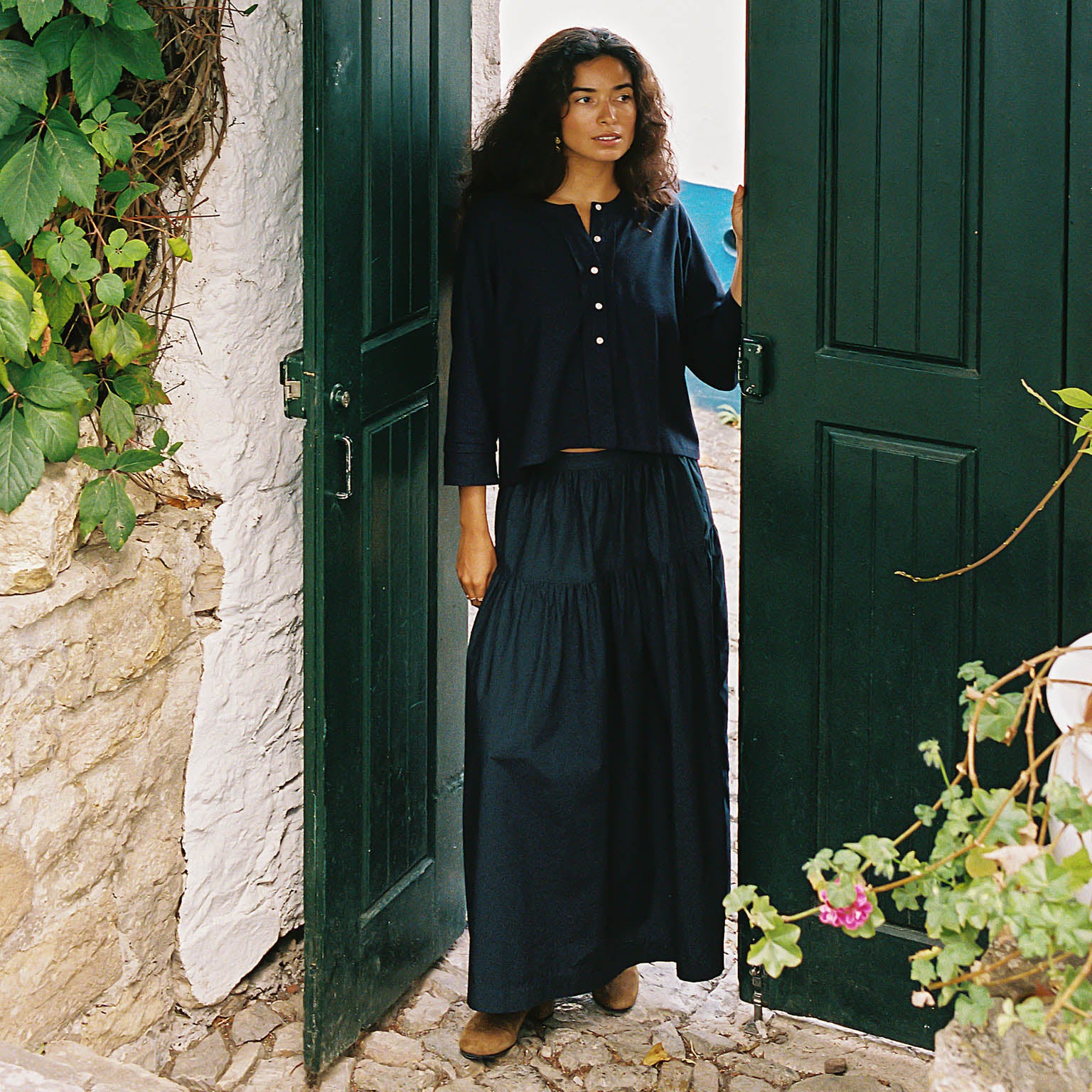SIGNATURE FABRICS
We will never claim to be perfect - but we try our hardest to provide you with the most eco-friendly fabrics we can find. Here you can learn about our most used fabrics. We love them both for their sustainability factor and how they make our unique designs stand out.
Linen is a strong natural fibre that is made from flax. It becomes softer and more absorbent after each wash. Its most valued property is its all-season versatility. In warm weather, linen's loose weave allows air to penetrate – keeping you cool. In the colder months, the polygonal cross section of its fibres act as a natural insulator trapping heat. Yes, we just gave you the permission to wear linen year-round!
WHAT MAKES LINEN ECO-FRIENDLY?
Untreated linen is fully bio-degradable and can be grown on marginal land that is unsuitable for food crop production. The whole flax plant is versatile and is used in various ways which means nothing is wasted. Flax is completely natural and does not require fertilizers or chemicals to be cultivated and processed into textile. Some processes include dew-retting and enzyme-retting - which uses natural moisture, reducing water waste and pollution. Organic linen guarantees no chemical herbicides and fertilizers have been used.
WHAT IS THE BEST WAY TO CARE FOR MY LINEN MADE CLOTHES?
-Wash in cold water with like colours. Hand-wash is always preferred.
-Hang to dry. Linen's natural creases make it unique but if you wish to iron, iron while damp and use a medium-hot steam setting.
-Can also dry clean (please consider eco dry cleaners first!)
Made from cannabis sativa fibre, this hypo-allergenic fabric breathes and looks like linen, and will also keep you cool in the Summer and warm in the Winter. It is the second strongest natural fibre after spider silk. Not only is hemp durable, it gets softer with age - making it the most sustainable fabric in our collection while taking you on years-worth of adventures.
WHAT MAKES HEMP ECO-FRIENDLY?
Hemp is THE eco superstar. It is a renewable, fast growing crop that produces 250% more fibre than cotton and 600% more fibre than flax. Cultivation requires no pesticides or herbicides and can be completed in as little as 100 days. If thats not enough, hemp also does not exhaust the soil, it instead adds rich organic matter to topsoil and helps it retain moisture – which means, it’s great for the earth.
WHAT IS THE BEST WAY TO CARE FOR HEMP MADE CLOTHES?
-Wash in cold water with like colours. Hand-wash is always preferred.
-Hang to dry, wrinkles will fall out overnight. If you wish to iron, iron while damp and use a medium-hot setting.
-Can also dry clean (please consider eco dry cleaners first!)
Organic cotton is a soothing and harmless natural fibre that is also non-allergenic. It has the ability to control moisture, insulate, and provide comfort. Because natural cottons are not chemically stripped of its natural wax, organic cotton has a flattering smoothness and weight in its drape.
WHAT MAKES ORGANIC COTTON ECO-FRIENDLY?
Organic agriculture protects the health of people and the planet by reducing the amount of toxic chemicals that end up in the earth, air, and water. Organic cotton is made from a cotton plant that has not been genetically modified, it is also grown without chemical fertilizers or pesticides. Compared to regular cotton, organic cotton is 46% less harmful to global warming. It brings 70% less acidification of land and water, the potential for soil erosion drops by 26%, surface and groundwater use falls 91%, and demand for energy goes down 62%.
WHAT IS THE BEST WAY TO CARE FOR MY ORGANIC COTTON MADE CLOTHES?
-Wash in cold water with like colours. Hand-wash is always preferred.
-Hang to dry, Iron while a little bit damp and use a medium-hot steam setting.
WHAT MAKES DEADSTOCK FABRICS ECO-FRIENDLY?
Deadstock fabrics are not necessarily eco fabrics, but turning them into clothing is a sustainable action because the fabrics may otherwise go to the landfill. By making new clothing out of something that already exists we not only suppress the demand for a new material, we also prolong the life of a produced good that has required a ton of resources (water, energy, etc.) to come to life by turning it into a timeless design we hope will stay away from the landfill for many years.
WHAT IS THE BEST WAY TO CARE FOR MY DEADSTOCK MADE CLOTHES?
The fibre content of deadstock fabric vary depending on what we select. We always recommend to hand-wash and hang-dry your garments to minimize your ecological footprint.







